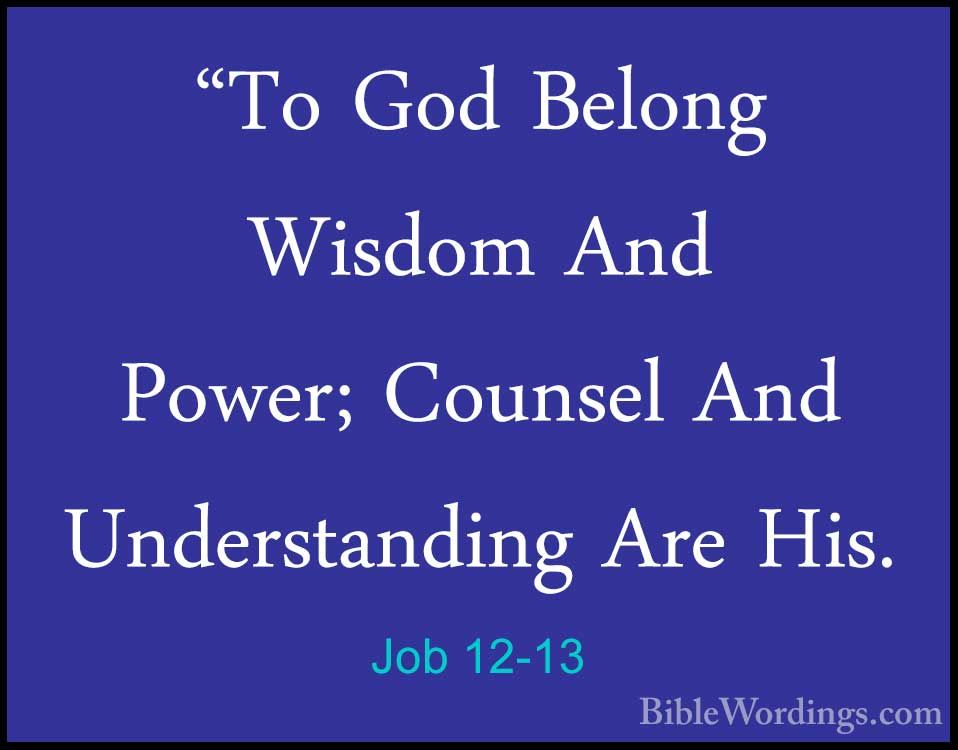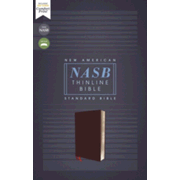When developing your faith, especially while facing life’s uncertainties, the guidance from Proverbs 3:5-6 offers solace: “Trust in the LORD with all your heart and do not lean on your own understanding. In all your ways acknowledge Him, and He will make your paths straight.” (NASB) Trust is rooted in knowing God, His unwavering promises, and His faithful actions.
Faith and TrustFaith in God is the confident belief that He is the sovereign Creator of all things and that He can and will do what He claims. This faith, of which trust is a central component, is what distinguishes those who are in Christ from those who are in Adam, the federal head of fallen humanity (Romans 5:12-6:14).
As the writer to the Hebrews reminds us, “Without faith it is impossible to please Him, for he who comes to God must believe that He is and that He is a rewarder of those who seek Him.” (Hebrews 11:6, NASB).

Faith is something that is fashioned in us by the grace and power of God, through His Word and the ministry of the Holy Spirit, and it is also something that we must have as believers.
Trusting God is an essential element of true and saving faith that looks to God and finds peace, strength, contentment, and much more in Him, and all that He has done, is doing, and will do, both now and forever in His Son Jesus Christ. Trust relates to saving faith.
Trust, as a verb, is something you do or act upon. Faith always comes first, usually through the Holy Spirit’s leading us through God’s Word (the Bible), but trust is never guaranteed. You are free to determine how much you trust God.
Grow of TrustTrust grows out of a knowledge of God, His promises, and His actions.
Trusting God is an aspect of saving faith which has been said to have three elements: 1
- knowledge,
- assent,
- and trust.
All three aspects go together. But without trust, faith is inadequate and indistinguishable from the faith of demons who believe in God but do not repent and surrender themselves to Him (James. 2:19; Psalm 78:22).

Faith consists in trust because trust is the apt response to His promises; it is only in virtue of God’s promises, received appropriately, that the Christian is made righteous before God; and the need to be made righteous before God is the central problem addressed by faith.
God can be trusted because his word is true, and he keeps all his promises (Numbers 23:19). Everything about God is trustworthy because of who He is in the perfection of His being.
Biblical examples of our Lord’s promises, documented in Scripture, for which you should develop trust are:
- Christ has promised never to leave us or forsake us (Hebrews. 13:5),
- to be with us always, to the end of the age (Matthew 28:20),
- to bring to completion the good work he has begun in us (Philippians 1:6),
- Jesus will save his people from their sins (Matthew 1:21),
- and many more.
Trusting God is an essential element of true and saving faith that looks to God and finds peace, strength, contentment, and much more in him, and all that he has done, is doing, and will do, both now and forever in his Son Jesus Christ. 2

We are commanded to trust the Lord. (Psalm 4:5) The Apostle Paul teaches that we must “work our salvation with dear and trembling” because it is God who is at work in us, to develop and to work according to His will and approval (Philippians 2: 12, 13).
As the hymn says, we must “trust and obey.” 3 You cannot obey what you do not trust and you are not trusting if you do not obey.
The Bible elucidates the great truth that God is trustworthy in two ways:
- It warns about the folly of trusting in anyone or anything other than the Lord,
- and it describes His unique glory for us.
Scripture warns us against trusting in anything created:
- trusting in men (Jeremiah 7:5; Proverbs 25:19),
- political alliances (2 Kings 18:21; Isaiah 30:2,3; 36:6),
- riches (Proverb 11:28; Psalm 52;7; Jeremiah 48:7; 49:4),
- false gods (Psalm 31:6; Isaiah 42:17),
- lies (Jeremiah 13:25),
- beauty (Ezekial 16:15),
- our own way and military superiority (Hosea 10:13),
- our own minds (Proverb 25:26),
- ourselves (Luke 18:19; Romans 1:25)
God is also wise, which means that he knows the best goal and the best way to achieve that goal. 4
It is critical to understand God’s wisdom if we are to trust him. It means that this world, and our lives in it, represent a course charted by divine wisdom.
God’s wisdom is often difficult, if not impossible, to see at this point in redemptive history because we cannot see things from His perspective. But at the end of this age when we can see the big picture from the vantage point of the age to come, we will see that God is wise and that he knew what he was doing all along (Job 12:13; Romans 16:27; 1 Corinthians 3:19, 20).

In addition to God’s existence that has no source outside of Himself (called “aseity”) and sovereignty, the Bible teaches that God is love (1 John 4:8). Rather than putting our trust in anything created the aseity of God rationalizes:
- God is not a creature but uncreated, the eternal creator (Hebrews 11:3),
- God is not bounded by time and will never cease to exist (Isaiah 57:15; Peter 3:8)
- God is not dependent on anyone or anything for His existence. He is not dependent on anyone or anything and does not need anything (Acts 17:25).
- God is all-present, all-knowing, and all-powerful; no one can thwart His will, or resist Him (Job 9:12; Daniel 4:35)
- God does all that He pleases (Psalm 115:3)
- “works all things according to the counsel of His will” (Ephesians 1:11)
God loves all His creation and cares for it in many ways (Matthew 5:43-48; Acts 14:17; 17:25-27), but He has a special love for His people that will bring them into fellowship with Himself and result in full salvation from sin and all of their enemies in this world and the next (John 17:23; Romans 8:29-39). This love of God will never let us go and we can always rely on him.
The Manifestation of Trust in Our Lives as ChristiansIf we trust in God, we will obey him as our sovereign Lord. We will obey because we believe He knows what is best. Disobedience and trust cannot coexist; if we trust God, we will walk in His ways and do what He tells us.
Trusting God will help us wait on Him when He delays or is silent regarding our prayers or the fulfillment of His promises. If He delays, it is for a good reason. His actions are founded on His wisdom and love. King David wrote, “Wait for the LORD and keep His way, and He will exalt you to inherit the land; when the wicked are cut off, you will see it.” (Psalm 37:34) We should see the same.
Trusting God will keep us from taking matters into our hands as if we know better than God what we should do. Abraham (though generally a good example of trust in God), along with his wife Sarah, tried to bring about the fulfillment of God’s promise of a son by Hagar, Sarah’s Egyptian servant who bore Ishmael, son of Abraham. This was not how the promise would be fulfilled and their actions had many unforeseen consequences (Genesis 16).
If we trust God, we will not be afraid. “Behold, God is my salvation, I will trust and not be afraid; for the LORD GOD is my strength and song, and He has become my salvation.” (Isaiah 12:2, NASB).

Fear comes when we take our eyes off God and start to look at our surroundings. In life and when we pass through the experience of death, we must cling to him (Psalm 23).
If we trust God, we will be content with what He has given us. We know that He has promised to give good things to His people and that He holds nothing back (Romans 8:32). He tells us to ask Him for our daily bread and to seek first His kingdom, and we must believe that He will supply our needs one day at a time according to His will (Matthew 6:11, 25-34).
Those who trust God will act in faith. Knowing who God is, what He has promised, what He has done, and how His people have trusted in Him in times of temptation, darkness, desertion, adversity, and affliction, as well as in times of joy and abundance. The Christian should be bold and courageous. In the words of William Carey’s most famous quotation, those who trust God will: “Expect great things from God; attempt great things for God.” 5
______________Affiliate link – SHOP: _______________
_This ad is for my favorite version of The Bible _
_____but click on it to go to the whole store______


NASB Comfort Print Thinline Bible, Red Letter Edition–bonded leather, burgundy (click here)
By Zondervan
The beloved 1995 Edition of the New American Standard Bible is now easier to read with Zondervan’s exclusive NASB Comfort Print® typeface. This edition of the NASB Thinline Bibles is available in a variety of sophisticated designs in a portable, easy-to-read format.
- The full text of the New American Standard Bible, 1995 Edition
- Exquisite, durable covers
- Less than one inch thick
- Double-column format
- Presentation page
- Two satin ribbon markers
- Words of Christ in red
- Exclusive Zondervan NASB Comfort Print 9 point type
Features:
____________________________________________
Consider the Daily Bread email message sent on 2/28/2024 which says,
Proverbs 3:5, 6 – Trust in the LORD with all your heart and do not lean on your own understanding. In all your ways acknowledge Him, and He will make your paths straight. (NASB)
To encourage us to trust God, and to grow in our relationship with Him, the Bible has much to say about God’s perfections, promises, and actions. Scripture provides us with examples of trusting God and describing some ways this trust should manifest itself in our lives.
To trust in the Lord means believing in who He is, and what, He says. The word trust can also mean “to have confidence in.” Having confidence in something is an assurance that leads to action. Trust in the Lord is a faith that lets us boldly serve. This confidence should infuse our whole being.
To receive the Daily Bread email messages, free on Mon., Wed., and Fri., in your email inbox, just fill in the form below or send an email, and ask to be added, to jmikeh@jmhowington.com
Click Here to Scroll To Top of the Page
